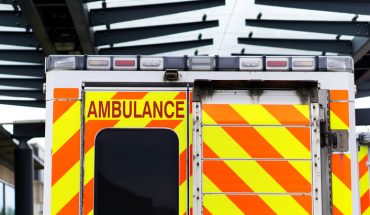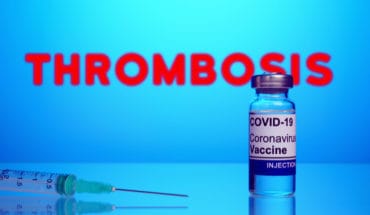An average of 3,399 patients per week missed out on urgent and routine referrals during lockdown, according to the Taskforce for Lung Health.
New analysis by the Taskforce for Lung Health reveals that people in urgent need of support for respiratory problems saw a large drop in levels of care during the lockdown. Crucially, outcomes for patients with lung disease have not improved for over 10 years in the UK. The Taskforce is now warning that the Covid-19 crisis could have dire consequences on the little progress that has been made in diagnosing and treating lung disease, leading to increased pressures on the NHS this winter.
The figures show that during lockdown, at least 34,780 people missed out on referrals for specialist care, treatment or diagnosis in England. As 1500 people are typically newly diagnosed with lung disease each day in the UK, this would suggest that the number of people who are now waiting to be diagnosed is likely to be in the thousands.
Hospital admissions due to respiratory conditions are one of the greatest contributors to winter pressures faced by the NHS. The recent delays in diagnosis and care will likely severely impact people whose lung conditions have become unmanageable, or those who will continue to live without diagnosis or treatment to keep their condition under control. On top of ordinary annual spikes for respiratory, this will lead to an overwhelming backlog of people needing urgent treatment in hospitals this winter. The Taskforce for Lung Health is calling for NHS England to ensure that services are back up and running as soon as possible in order to tackle this backlog of patients needing support.
On average, 3,399 patients missed out on urgent and routine referrals per week. The data from NHS England, analysed by the Taskforce, also showed that nearly 2 in 5 (39%) of CCGs in England did not see a single appointment booking for respiratory conditions in May, and 65% of CCGs had 5 or less bookings. In contrast to this, data on cardiology referral rates showed those experiencing heart problems had much more access to care, with just 1 in 5 (26%) of CCGs showing no bookings for cardiology, and 38% with 5 or less bookings in May.
Services in England were already playing catch up before the pandemic, as historically, certain lung conditions have been diagnosed far too late. For instance, 1.2 million people live with diagnosed chronic obstructive pulmonary disease (COPD) in the UK, but estimates show that as many as two thirds of people living with COPD remain undiagnosed and therefore are not receiving treatment or support to stay well and out of hospital.
Notably, in April alone, the number of people referred to urgent care for respiratory problems dropped by 70%, whilst routine referrals dropped by 86%, and for lung cancer specifically, referral rates dropped by 61%. Referrals for urgent care are normally used to support patients in cases where there is a suspicion of a less common, but more severe condition that needs diagnosing like idiopathic pulmonary fibrosis (IPF).
Delays to tests and care for aggressive conditions such as lung cancer and IPF, a form of interstitial lung disease, could have serious consequences as such conditions require urgent care and treatment. For example, only 1 in 5 patients diagnosed with IPF survive for longer than 5 years, so it is crucial that people who may have IPF have access to treatment to improve their outcomes.4 With so much of the focus now being on covid-19, the Taskforce warns that it is vital that those with potential long term lung conditions get support as soon as possible.
Ron Flewett, 59, a Technical Sales worker from Torksey Lock, Lincoln, who was diagnosed with IPF in 2014, said, “Getting my diagnosis was a life changing moment for me, because it meant I could finally get access to medication to treat my condition.
“However, it took years to actually get diagnosed, because my X-rays came back as clear and my symptoms – such as my breathlessness and cough – were wrongly attributed to my history of smoking. I cannot imagine how scary it would be to face the symptoms of IPF during covid-19 and the lockdown, without having access to all of the support available on the NHS, to get diagnosed and get treatment”
“If I had not had access to the support I had, I would have felt scared, lonely and depressed and I definitely would not have understood the seriousness of my condition and how to look after myself to ensure I had the best quality of life. I think the disease may have progressed quicker and I would have struggled physically and psychologically.”
Ron added, “My advice to others would be to say that If you are experiencing any breathlessness or persistent cough don’t ignore it. Go to your GP, ask for help. You’re not alone. Don’t put breathlessness down to age. The quicker you act the better the outcome”
Steve Jones, chair of Action for Pulmonary Fibrosis, said, “People living with pulmonary fibrosis generally have a short life expectancy, so it is important they are diagnosed and treated as quickly as possible. A serious concern is that Covid-19 has adversely impacted on the availability of the lung function tests IPF patients need before they can be prescribed critical antifibrotic medicines. Because lung function tests are ‘aerosol generating’ facilities must be disinfected after each patient. This has significantly reduced the number of tests that hospitals can carry out.”
“Although NHS England guidelines now state IPF patients should be given priority for lung function tests, many general hospitals find this difficult to do given the demand for lung function tests from post-Covid patients, some of whom will develop pulmonary fibrosis. There is a real danger of risking the lives and wellbeing of thousands of people over the next year.”
The majority of lung diseases are diagnosed in primary care (e.g. in a GP surgery) where Advance Care Practitioners assess whether symptoms such as a cough or breathlessness are indicators of something more troubling, such as COPD.
For patients with more prevalent lung conditions such as COPD, urgent referrals offer specialist support to treat conditions which are deteriorating, and the drop in referrals suggests that many people would not have had support for their lung conditions outside of emergency hospital admissions during the pandemic.
Dr Noel Baxter, a GP and the policy lead at the Primary Care Respiratory Society, a member of the Taskforce for Lung Health, commented, “It is important that any patients concerned about having a potential lung condition contact their GP now.
“It’s possible that people who may have had symptoms of a lung condition – such as breathlessness – for some time, may have become more aware of them because we are now so alert to the signs of Covid-19. Some of the symptoms of Covid-19 do cross over with the indicators of long term lung diseases such as COPD, so this is a good opportunity to encourage people who are now more aware that they are living with respiratory symptoms to find out why they are experiencing them and get an earlier diagnosis.”
During the pandemic, key ways of diagnosing patients, such as through spirometry,5 have been put on hold as they risk spreading covid-19 due to the coughing they induce. The NHS plans to introduce diagnostic hubs in 2021, which will be formed of multidisciplinary teams working to diagnose people in environments safe against covid-19.
For respiratory patients needing access to urgent and routine referrals, delays are expected to continue for as long as two years. The Royal College of Radiologists has said that last year, the NHS was short of 1,900 radiologists, equating to a third of the current workforce, while many of the UK’s scanners are over 10 years old. Moreover, there is a looming crisis in chest imaging expertise, with three chest radiologists leaving the hospital workforce for every two that join.
Dr Sam Hare of the Royal College of Radiologists, a member of the Taskforce, said, “Imaging is central to early and accurate diagnosis of lung disease. It is imperative that an infrastructure is put in place, with investment in hospital imaging resources, to ensure that patients can get timely and accurate diagnosis. This would mean people living with lung conditions now – and patients who may develop lung conditions as a result of covid-19 – all have rapid access to treatment and care. ”
In its five-year plan, the Taskforce for Lung Health has recommended that there is a need to improve early detection by creating clear pathways with services for timely, accurate and complete diagnosis for all people with breathlessness and other respiratory symptoms.
Dr Alison Cook, chair of the Taskforce for Lung Health said “The Taskforce for Lung Health has come together in a rallying cry to urge the government and the NHS to make respiratory a priority this year and ensure that anyone waiting for a diagnosis has the opportunity to get help as soon as possible.
“It is currently looking likely that we will be waiting for diagnostic hubs to get up and running until at least January 2021. This is simply unacceptable for the thousands of people waiting to get diagnosis and treatment today. We cannot risk creating a further backlog of people who see their conditions deteriorate, putting enormous pressure on the NHS this winter, which may become utterly insurmountable in the possible event of a second wave of covid-19”.
- Gut microbiome could delay onset of type 1 diabetes - 3rd April 2025
- The da Vinci 5 Robot Is Set To Transform Bariatric Care: - 31st March 2025
- Beyond money: the hidden drivers fuelling child food insecurity - 31st March 2025






